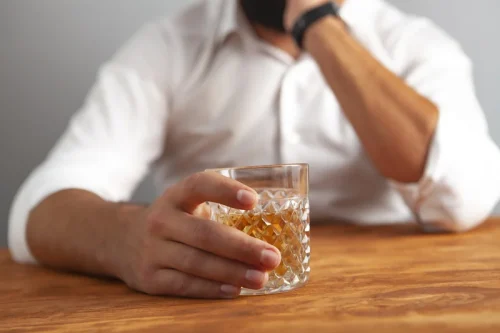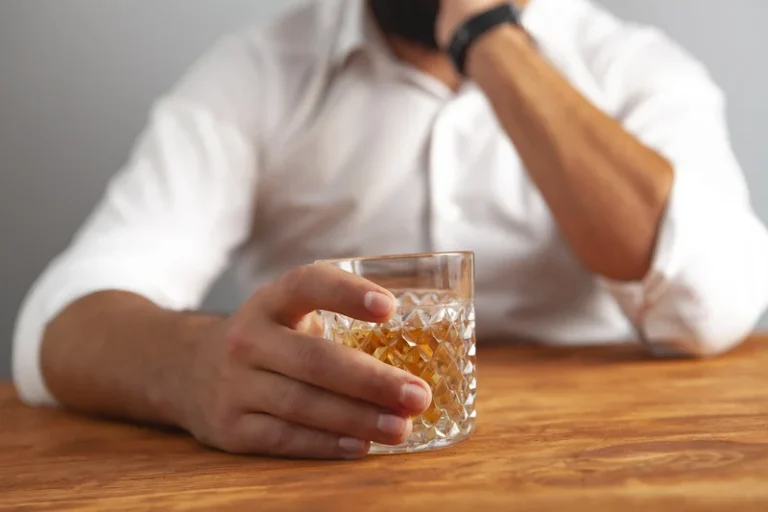
If you spend an average of $100 a week on alcohol, you’ll save more than $5,000 a year when you give up drinking. Many people who give up alcohol report improvement in their overall ability to focus and say that they have more energy compared to when they drank. Because substance use disorder is a complex disease, you likely have more than one trigger. When you feel a craving coming on, assess what’s around you and what you’re feeling. If it seems like no progress is being made and all you see is failure, you can replace it by focusing on the positive progress that you have made, no matter how small it may feel. Even a small bit of progress, such as the moment you first acknowledged your addiction problem, can fuel your recovery.

Can you stop drinking without going to AA?
- Understanding what contributes to differences in how individuals undergo withdrawals assists in overseeing the withdrawal phase with greater efficiency and safety.
- Your doctor will want to evaluate you for alcohol-related damage to your liver, heart, the nerves in your feet, blood cell counts, and gastrointestinal tract.
- Similarly, some alcoholics may be able to stop drinking with the help of Alcoholics Anonymous.
- Almost everyone who struggles to quit drinking requires some form of peer support.
- The death rate for those suffering from DTs lies between 1% and 4%, but without timely treatment, up to 15% of these episodes could result in fatality.
You may be able to better compare your options by assessing whether and how the program or provider measures success. Overall, gather as much information as you can about a program or provider before making a decision on treatment. If you know someone who has firsthand knowledge of a program, it may help to ask about their personal experience. 12-step facilitation therapy is an engagement strategy used in counseling sessions to increase an individual’s active involvement in 12-step-based mutual-support groups. Professionally led treatments include behavioral treatments and medications. The evidence suggests that the free and flexible assistance provided by mutual-support groups can help people make and sustain beneficial changes and, thus, promote recovery.
Types of Treatment
- Through our holistic treatment programs, we focus on healing the whole person—physically, mentally, emotionally, and spiritually.
- Seek credible sources like government health agencies, scientific journals, and healthcare professionals to understand alcohol’s risks comprehensively.
- Alcoholics Anonymous cautions its members not to get too hungry, angry, lonely or tired—all of which can make you more vulnerable to the urge to drink.
- Alcoholic drinks often contain many calories, so by cutting out alcohol you can cut your total calorie intake.
- While getting sober is an important first step, it is only the beginning of your recovery from alcohol addiction or heavy drinking.
To help improve skin quality and speed up collagen and elastin repair, Dr. Reszko advises using a retinoid nightly. Not only does it help stimulate collagen production, it also boost cells turnover, improving tone and texture more immediately. Alternately, peptides and growth factors are other good actives to seek out, both offering similar reparative and regenerative effects, she says. In 2019, only 1.6 percent of adults with AUD took a pill to help them stop drinking, according to a report published in JAMA Psychiatry that looked at national survey data. • Disulfiram, which can be used after at least 12 hours without alcohol, causes unpleasant symptoms (nausea, vomiting, chest pain, sweating and weakness) if alcohol is consumed. No content on this site, regardless of date, should ever be used as a what is Oxford House substitute for direct medical advice from your doctor or other qualified clinician.
Other Beneficial Effects of Quitting Drinking
The journey to overcoming alcoholism is long, and you need a helping hand to walk you step by step throughout the road to an alcohol-free life. However, it is possible to pull yourself out of the snares of alcohol addiction. You must decide this for yourself, ideally in consultation with a healthcare provider who can advise you on the best path forward given your personal drinking history and your current health.
- Medications such as naltrexone, acamprosate, and disulfiram help reduce alcohol addiction cravings and reinforce abstinence.
- Conversely, scores exceeding 18 denote an elevated danger for serious complications without proper intervention.
- An alcohol intervention meeting’s success is not gauged by whether or not the addicted person learns how to stop drinking alcohol right away.
- They can remind you whenever you forget to follow through your goals.
The chronic nature of alcohol dependence means that many individuals experience relapse triggers, such as stress, social pressure, or emotional instability, which leads to temporary setbacks. The Termination stage is the final phase of alcohol recovery, where individuals achieve full independence from alcohol dependence with minimal risk of relapse. This phase signifies that alcohol no longer poses a threat to the individual’s life. Confidence in maintaining long-term sobriety is fully developed, and the need for structured support systems significantly decreases. The Maintenance stage is the fifth phase of alcohol recovery, where individuals focus on sustaining sobriety and preventing relapse.
Going outside and walking can do wonders if you are having a particularly rough time. You may not feel like being physically active or going outside, but a good walk can completely recharge your mental and emotional state. One factor to remember is that the discomfort of withdrawal is only temporary. This thought process can be a useful mental tool when the physical pain of withdrawal is most severe. It is not unusual to feel anxious, restless, excited, or shaky when trying to quit alcohol. This is why it is extremely crucial to follow all the recommendations discussed in the text.

You may also consider joining an online support group to help you feel less alone. It might also be worth checking out a 12-step program in your area, like Alcoholics Anonymous or SMART Recovery, to see if it feels like something that might be how to overcome alcoholism useful for you. Letting others know about your choice to stop drinking may help motivate you to stick with your decision.
They can motivate you to keep fighting the battle to recovery even when you feel like giving up. It is hard to quit alcohol when you don’t see anything wrong with it. Alcohol users need to think of all the benefits they will get if they stop drinking, and weigh them against the cost ofconsuming alcohol. This could mean attending a support group specifically for people with alcohol issues like Alcoholics Anonymous (AA). But it could also be helpful to make new social contacts based around an interest such as a sport, the arts, or other activities you enjoy. When you quit drinking you can refocus your attention on repairing these relationships without the barrier of alcohol.

How to Quit Drinking Alcohol
Maybe you’re worried that people will judge you for struggling with drinking. Or maybe you’re worried that they’ll judge you for wanting to quit. The severity of your addiction should guide your treatment search.Alcohol detox, a partial hospitalization program or inpatient or outpatient treatment may be effective options. Incorporating holistic healing into your treatment through art therapy, recreational therapy, or even yoga may further help you overcome addiction.
Rehabilitation Programs
That said, If you’ve been drinking excessively, then stopping drinking cold turkey can lead to withdrawal symptoms. Anyone experiencing problems with alcohol can benefit from counseling and therapy. A counselor can help you develop personalizedstrategies to get sober. Counseling can be simple or intensive depending on the severity of your drinking problems. Things will take a while to settle down, leaving you tired or sluggish for a long time before your body becomes balanced again.
Leave a Reply